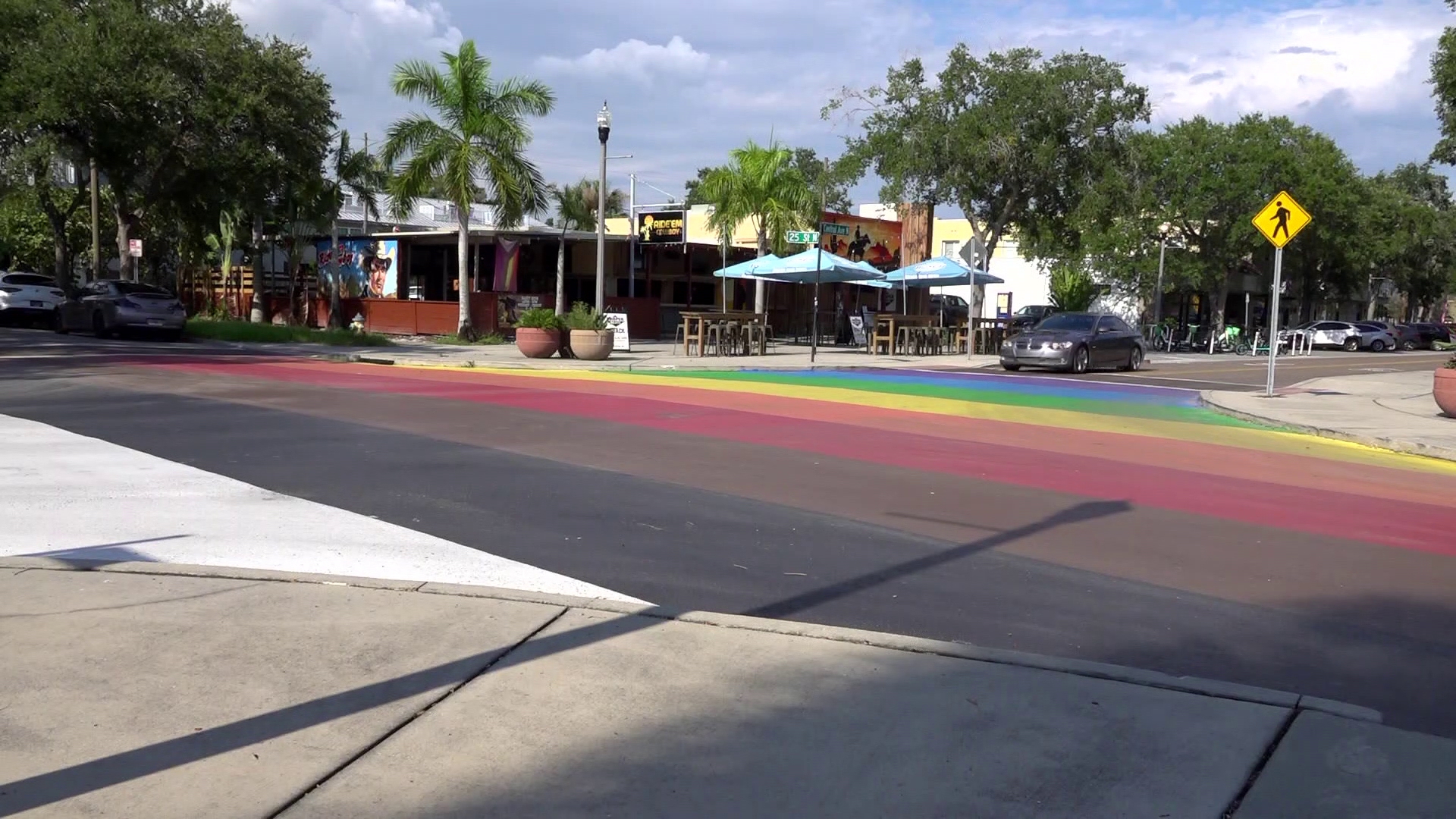ST. PETERSBURG, Fla. — Key West, Fort Lauderdale, Wilton Manors and St. Petersburg are among several Florida cities that have long been top U.S. destinations for LGBTQ+ tourists. So it came as a surprise this week when travelers learned that Florida’s tourism marketing agency quietly removed the “LGBTQ Travel” section from its website sometime in the past few months.
It left Rachel Covello of St. Petersburg with questions as to why.
Covello is the owner of OutCoast, an online LGBTQ+ travel blog that primarily focuses on Florida.
She said from a personal standpoint, it was shocking, feeling like a diverse community in the state was being erased at Visit Florida's website. From a business standpoint, she said it makes no sense for her, citing the numerous LGBTQ+-friendly events and destinations that bring revenue to the state.
"My goal is never to tell people to not come to Florida," Covello said. "My goal, though, is just to make sure that our statewide destination marketing organization is representing the destinations they support, the members they support, and the travelers that they're supposed to be marketing to. That includes all travelers to Florida."
A former chair of Visit Florida also questions why the section no longer exists and cites the economic harm it may pose.
"I know how important every traveling group is to the state of Florida," said Maryann Ferenc, who served as chair from 2017 to 2018. "It was a very serious concern, both about the action itself and about the fact that there seemed to be so little communication to partners."
Ferenc said diversifying tourism was among her priorities during her time. She said connecting with diverse audiences allows the state to prosper when it comes to tourism.
She cited St. Pete as a successful example due to its more lively and diverse tourism businesses.
Covello echoes how much revenue LGBTQ+ events can bring. For instance, St. Pete Pride garners hundreds of thousands of people every single year and is known to host Florida's largest Pride parade.
"It just doesn't make sense," Ferenc said. "I don't understand why we would not want to continue on the path that we were already on."
Other business owners who cater to Florida’s LGBTQ+ tourists said Wednesday that it marked the latest attempt by officials in the state to erase the LGBTQ+ community. Republican Gov. Ron DeSantis previously championed a bill to forbid classroom instruction on sexual orientation and gender identity, and supported a ban on gender-affirming care for minors, as well as a law meant to keep children out of drag shows.
“It’s just disgusting to see this,” said Keith Blackburn, who heads the Greater Fort Lauderdale LGBT Chamber of Commerce. “They seem to want to erase us.”
The change to Visit Florida’s website was first reported by NBC News, which noted a search query still pulls up some listings for LGBTQ+-friendly places despite the elimination of the section.
John Lai, who chairs Visit Florida’s board, didn’t respond to an email seeking comment Tuesday. Dana Young, Visit Florida’s CEO and president, didn’t respond to a voicemail message Wednesday, and neither did the agency’s public relations director.
10 Tampa Bay also reached out to Visit Florida and the governor's office for comment.
Visit Florida is a public-private partnership between the state of Florida and the state’s tourism industry. The state contributes about $50 million each year to the quasi-public agency from two tourism and economic development funds.
Florida is one of the most popular states in the U.S. for tourists, and tourism is one of its biggest industries. Nearly 141 million tourists visited Florida in 2023, with out-of-state visitors contributing more than $102 billion to Florida’s economy.
Before the change, the LGBTQ+ section on Visit Florida’s website had read, “There’s a sense of freedom to Florida’s beaches, the warm weather and the myriad activities — a draw for people of all orientations, but especially appealing to a gay community looking for a sense of belonging and acceptance.”
Blackburn said the change and other anti-LGBTQ+ policies out of Tallahassee make it more difficult for him to promote South Florida tourism since he encounters prospective travelers or travel promoters who say they don’t want to do business in the state.
Last year, for instance, several civil rights groups issued a travel advisory for Florida, saying that policies championed by DeSantis and Florida lawmakers are “openly hostile toward African Americans, people of color and LGBTQ+ individuals.”
But visitors should also understand that many Florida cities are extremely inclusive, with gay elected officials and LGBTQ+-owned businesses, and they don’t reflect the policies coming from state government, Blackburn added.
“It’s difficult when these kinds of stories come out, and the state does these things, and we hear people calling for a boycott,” Blackburn said. “On one level, it’s embarrassing to have to explain why people should come to South Florida and our destination when the state is doing these things.”
The Associated Press contributed to this report.

